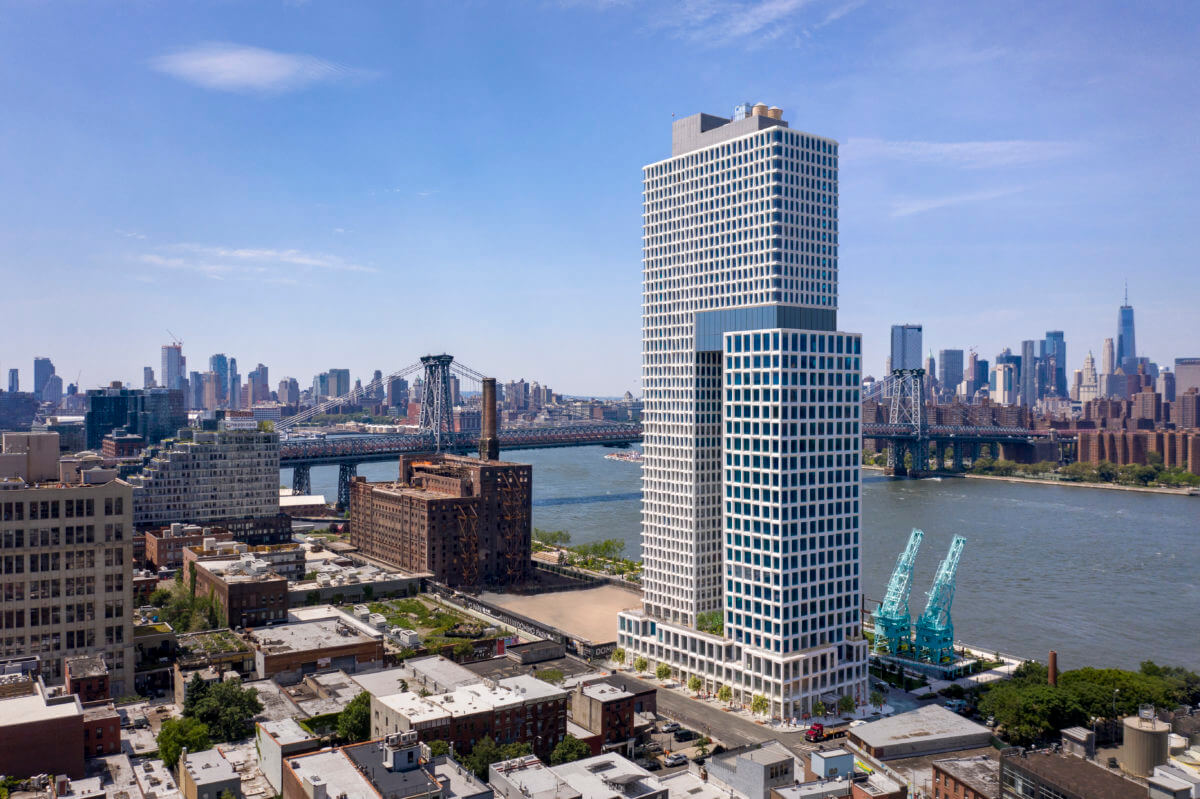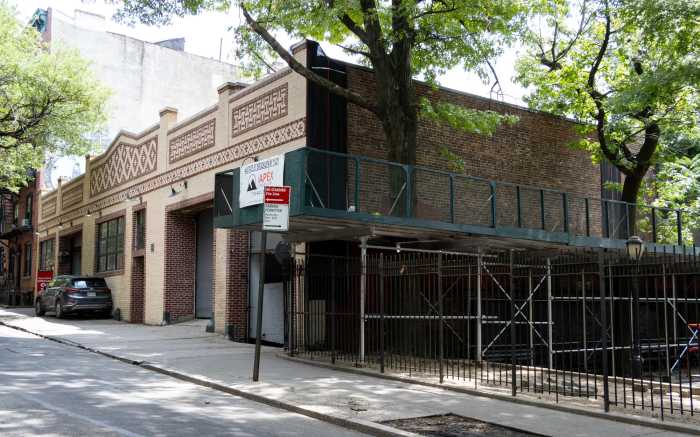Developer Two Trees and a couple of north Brooklyn nonprofits are urging state lawmakers to address a quirk in last year’s rent laws that may result in unaffordable housing at sites like the old Domino Sugar Factory, where builders say they can’t remove their market-rate units from rent stabilization without also upping the price tag on affordable housing units.
“We’ve been waving our arms in front of policymakers and legislators for months, trying to correct the oversight in the current law,” said Two Trees spokesman David Lombino in a statement.
The Dumbo-based company behind the Domino Park mega-development is currently offering 20 percent of their units there rent-stabilized and affordable, targeting tenants earning at up to 80 percent of the federally-designated area median income to avail of a 1970s tax break known as 421-a, which grants developers steep property tax abatements for up to 25 years.
But after a 2019 change from the Albany legislature, the law also made the remaining four-fifths of the units rent-stabilized, thereby removing them from the open market.
Builders also have the option to offer 30 percent of their units at up to 130 percent of the area’s median income under a new version of 421-a introduced in 2017 under the moniker “Affordable New York.”
Under this option, the remaining market-rate units would not become rent-stabilized, making this the more attractive choice for developers, who generally want to avoid caps on raising rents for their market-rate units.
But while developers would prefer that option, and despite the 10 percent increase in the total number of affordable units, the ceiling for those below-market-rate units would also rise substantially — more than doubling the rent for a two-bedroom affordable unit, from $1,550 per month to $3,063 per month, according to Two Trees.
Under the newer 421-a program, a family of four could earn up to $147,810 a year and still qualify, while the tax abatement period also increased to between 35-40 years total.
In 2019, two years after that upgrade, the Democratic-controlled state legislature passed a slew of other rent bills, including one that stabilized all market-rate units buildings receiving tax abatements under both 421-a tax programs — old and new. Previously only the affordable units were rent-stabilized.
After uproar from developers, who claimed that no one would build affordable housing under those conditions, state pols undid the rent stabilization law, allowing landlords to once again raise market-rate unit rents at their discretion — but only under the newer 421-a option, while leaving out the older 80-20 split tax abatement program.
As a result, Two Trees cannot go ahead with their plan to rent out 66 affordable units in their recently-completed mixed-use tower One South First at the lower AMI rates, while keeping the remaining 264 units on the open market.
The same change affects the two future developments they still plan to erect at the site, which would bring some 2,200 new units on the market including 500 affordable.
If legislators don’t get rid of the rent-stabilization mandate for the market rate units, Two Trees says they will enroll in the new plan that would see the affordable units go from up to 80 percent of AMI to 130 percent.
“If we can’t get a legislative fix immediately, we’ll proceed in renting the units to tenants who qualify for higher AMI bands,” said Lombino. “Two Trees is committed to offering these units to low-income tenants as soon as possible but cannot do so without a state legislative fix.”
Leaders of the north Brooklyn advocacy groups Southside United HDFC Los Sures and St. Nick’s Alliance, penned a letter to local legislators state Sen. Brian Kavanagh and Assemblyman Joe Lentol urging them to seek the change Two Trees is asking for.
“There are already too many new ‘affordable units’ being developed in Williamsburg and Greenpoint that are out of reach for most local residents,” reads the April 30 letter. “It would be a big win for this community if this proposed change became law as soon as possible. If not, it would be an outrage to see these affordable rents and [area median incomes] skyrocket when a solution with no known downside was overlooked.”
The legislative back-and-forth might also cause affordable rent rates to increase at Two Trees’s doughnut-shaped development on the former sugar factory campus at 325 Kent Ave., which boasts 105 below-market-rate units among its 522 rentals.
Those rentals are not rent-stabilized though, because Two Trees has not yet signed up for the tax exemption for that building, according to Lombino.
State Sen. Kavanagh — who chairs the upper legislative chamber’s Housing Committee, and drafted the June 2019 amendment that caused the change — said in an interview that Domino was in an “unusual situation,” but that immediate needs of tenants unable to pay rent due to the coronavirus outbreak took precedence, and was non-committal as to whether he’d bring the issue up in the near future.
“I don’t want to say, ‘I’m open to it,'” Kavanagh said. “Right now, we’re dealing with massive inability for people to pay rent.”
His local counterpart in the Assembly conceded that the law might need a change, but declined to provide specifics.
“It may be the law needs adjustment to protect housing that has been planned,” said Assemblyman Joe Lentol in a statement. “That’s not unusual and I am happy to work on the issue.”
While Two Trees claims they’re pushing for the change for the sake of lower affordable rents, staying in the older 80-20 framework also has other benefits for the company in the long run, by retaining 10 percent more units on the open market, according to one property tax expert.
“It is a win-win, because Williamsburg will preserve a lot more housing units that are truly affordable at 80 percent AMI,” said Yuri Geylik, the chief operating officer of the Dumbo property tax consulting firm MGNY. “If [Two Trees] have no caps on the market rate units, then it might not immediately benefit them, but over the decades absolutely that would be their best bet to maximize value.”
Geylik also noted the new tax break imposes labor requirements on developers, including paying construction workers prevailing wages averaging, which is $45 an hour in Brooklyn.
Lombino said the company already complies with that requirement, adding that the stricter labor regulations did not factor into their calculation.
“That’s not part of our consideration here,” Lombino said.

























